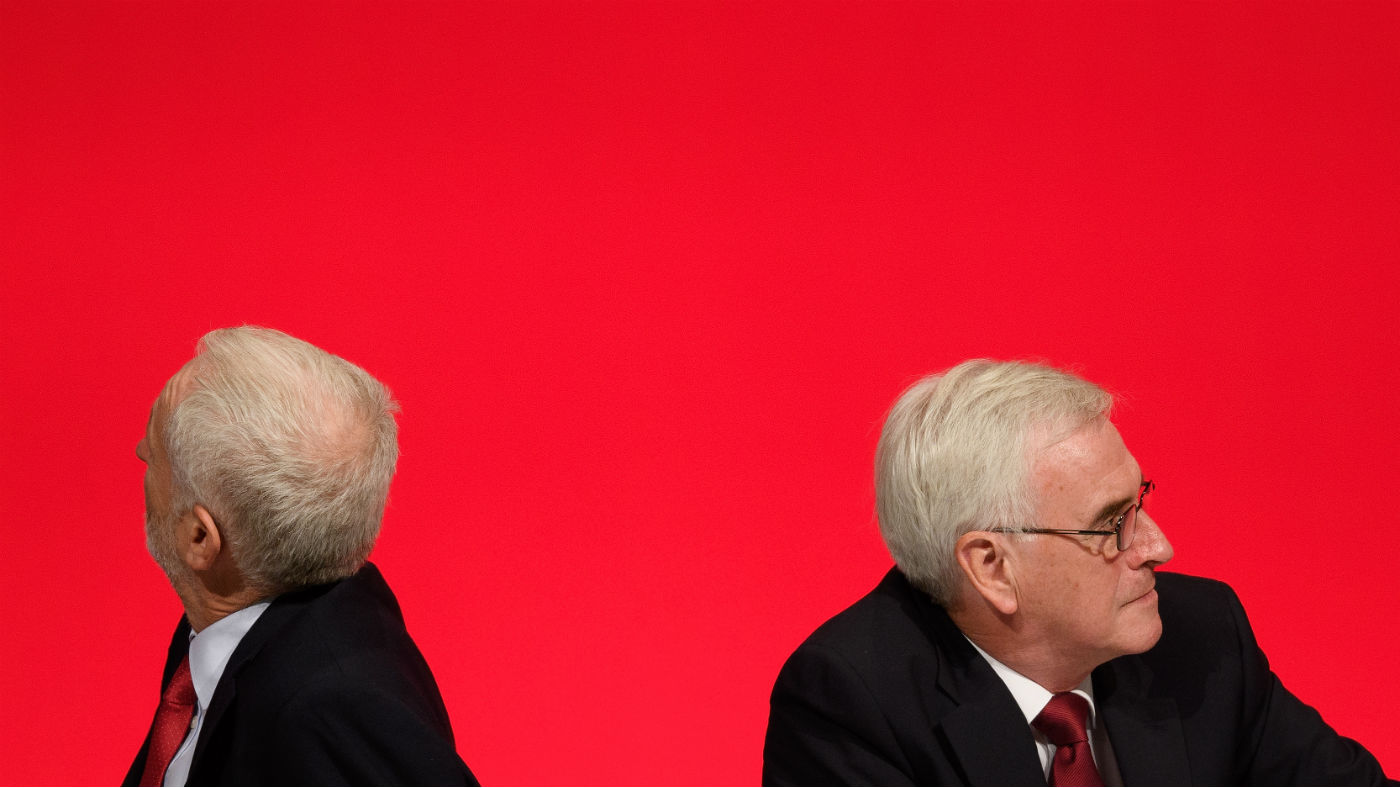How Labour’s tax row split the party
Shadow chancellor appears at odds with the majority of party on tax cut pledge

A free daily email with the biggest news stories of the day – and the best features from TheWeek.com
You are now subscribed
Your newsletter sign-up was successful
While Philip Hammond’s “austerity-ending” budget appears to have been generally well-received by the mainstream media, the public at large and restive Tory backbenchers, within the opposition it has ignited fierce debate.
The row that has ripped through Labour this week focuses on the shadow chancellor’s decision to back a tax cut for high-earners.
John McDonnell appeared at odds with many in his party when he reiterated his support for the 40p rate change, arguing that the “winners” would include mid-ranking doctors, late-career academics and school leaders, claiming these were hardly people he would consider “the rich”.
The Week
Escape your echo chamber. Get the facts behind the news, plus analysis from multiple perspectives.

Sign up for The Week's Free Newsletters
From our morning news briefing to a weekly Good News Newsletter, get the best of The Week delivered directly to your inbox.
From our morning news briefing to a weekly Good News Newsletter, get the best of The Week delivered directly to your inbox.
Yet the move has sparked an ideological backlash from many MPs and grassroots members, and exposed a deep division over where the line falls between the “many” and the “few”, the slogan which drives Labour’s entire strategy.
Labour MPs concerned about McDonnell’s support for tax cuts for higher earners have tabled a budget amendment that would force the Government to publish an assessment of its impact on child poverty.
MP Nisa Nandy wrote in LabourList that the government’s claim austerity was “coming to an end” should allow her party to be “much bolder about our opposition to these political choices, campaigning against austerity and highlighting its crushing impact on so many people who do not have a voice. Now is the time to roar”.
Other senior MPs, including former leadership candidates Andy Burnham and Yvette Cooper, have also opposed the shadow chancellor’s stance.
A free daily email with the biggest news stories of the day – and the best features from TheWeek.com
Setting out the current conundrum facing the Labour leadership, Owen Jones in The Guardian writes. Jeremy Corbyn was elected to party leadership as an inflexible economic radical., yet “now his leadership stands accused, by Yvette Cooper, of backing regressive Tory income tax cuts that will overwhelmingly benefit the well-off, and all for the sake of cynical electioneering”.
Former Conservative voters earning £45,000 to £50,000 were crucial to the party’s surge at the last election, and McDonnell has repeatedly sought to keep them on side.
However, Stephen Bush in The New Statesman says that “this is not the beginning of an ideological split over economics”, arguing that “externally, no-one cares about the Budget and there are no votes to be lost over supporting a tax cut.”
“What should trouble Labour is that they have looked so incoherent and wobbly over a policy set two years ago, and that the Conservatives appear to have finally found a political narrative that might actually win over some of the voters they lost last time”.
Bush’s New Statesman colleague, Patrick Maguire, agrees. “That there was no coordinated consensus on the finer details of such an expensive policy where the will of the party ought to have been settled should set alarm bells ringing,” he writes.
-
 6 exquisite homes with vast acreage
6 exquisite homes with vast acreageFeature Featuring an off-the-grid contemporary home in New Mexico and lakefront farmhouse in Massachusetts
-
 Film reviews: ‘Wuthering Heights,’ ‘Good Luck, Have Fun, Don’t Die,’ and ‘Sirat’
Film reviews: ‘Wuthering Heights,’ ‘Good Luck, Have Fun, Don’t Die,’ and ‘Sirat’Feature An inconvenient love torments a would-be couple, a gonzo time traveler seeks to save humanity from AI, and a father’s desperate search goes deeply sideways
-
 Political cartoons for February 16
Political cartoons for February 16Cartoons Monday’s political cartoons include President's Day, a valentine from the Epstein files, and more
-
 How corrupt is the UK?
How corrupt is the UK?The Explainer Decline in standards ‘risks becoming a defining feature of our political culture’ as Britain falls to lowest ever score on global index
-
 Reforming the House of Lords
Reforming the House of LordsThe Explainer Keir Starmer’s government regards reform of the House of Lords as ‘long overdue and essential’
-
 How long can Keir Starmer last as Labour leader?
How long can Keir Starmer last as Labour leader?Today's Big Question Pathway to a coup ‘still unclear’ even as potential challengers begin manoeuvring into position
-
 The high street: Britain’s next political battleground?
The high street: Britain’s next political battleground?In the Spotlight Mass closure of shops and influx of organised crime are fuelling voter anger, and offer an opening for Reform UK
-
 Is a Reform-Tory pact becoming more likely?
Is a Reform-Tory pact becoming more likely?Today’s Big Question Nigel Farage’s party is ahead in the polls but still falls well short of a Commons majority, while Conservatives are still losing MPs to Reform
-
 The launch of Your Party: how it could work
The launch of Your Party: how it could workThe Explainer Despite landmark decisions made over the party’s makeup at their first conference, core frustrations are ‘likely to only intensify in the near-future’
-
 What does the fall in net migration mean for the UK?
What does the fall in net migration mean for the UK?Today’s Big Question With Labour and the Tories trying to ‘claim credit’ for lower figures, the ‘underlying picture is far less clear-cut’
-
 Will the public buy Rachel Reeves’s tax rises?
Will the public buy Rachel Reeves’s tax rises?Today’s Big Question The Chancellor refused to rule out tax increases in her televised address, and is set to reverse pledges made in the election manifesto